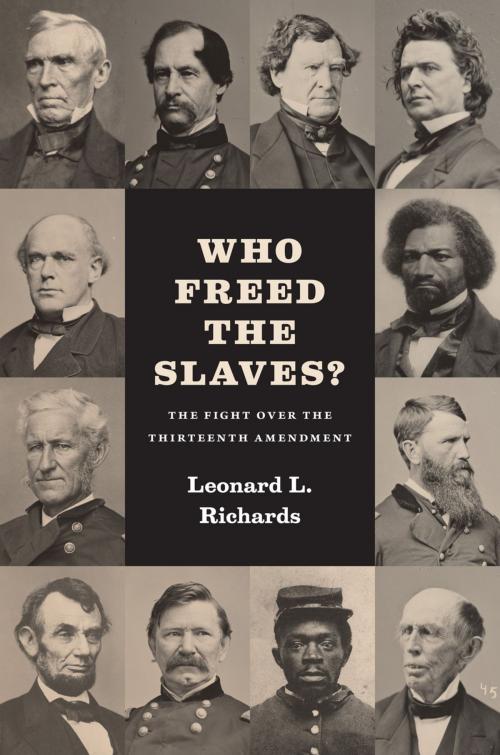Who Freed the Slaves?
The Fight over the Thirteenth Amendment
Nonfiction, History, Americas, United States, Civil War Period (1850-1877), Social & Cultural Studies, Political Science, Politics, History & Theory| Author: | Leonard L. Richards | ISBN: | 9780226208947 |
| Publisher: | University of Chicago Press | Publication: | April 6, 2015 |
| Imprint: | University of Chicago Press | Language: | English |
| Author: | Leonard L. Richards |
| ISBN: | 9780226208947 |
| Publisher: | University of Chicago Press |
| Publication: | April 6, 2015 |
| Imprint: | University of Chicago Press |
| Language: | English |
In the popular imagination, slavery in the United States ended with Abraham Lincoln’s Emancipation Proclamation. The Proclamation may have been limited—freeing only slaves within Confederate states who were able to make their way to Union lines—but it is nonetheless generally seen as the key moment, with Lincoln’s leadership setting into motion a train of inevitable events that culminated in the passage of an outright ban: the Thirteenth Amendment.
The real story, however, is much more complicated—and dramatic—than that. With Who Freed the Slaves?, distinguished historian Leonard L. Richards tells the little-known story of the battle over the Thirteenth Amendment, and of James Ashley, the unsung Ohio congressman who proposed the amendment and steered it to passage. Taking readers to the floor of Congress and the back rooms where deals were made, Richards brings to life the messy process of legislation—a process made all the more complicated by the bloody war and the deep-rooted fear of black emancipation. We watch as Ashley proposes, fine-tunes, and pushes the amendment even as Lincoln drags his feet, only coming aboard and providing crucial support at the last minute. Even as emancipation became the law of the land, Richards shows, its opponents were already regrouping, beginning what would become a decades-long—and largely successful—fight to limit the amendment’s impact.
Who Freed the Slaves? is a masterwork of American history, presenting a surprising, nuanced portrayal of a crucial moment for the nation, one whose effects are still being felt today.
In the popular imagination, slavery in the United States ended with Abraham Lincoln’s Emancipation Proclamation. The Proclamation may have been limited—freeing only slaves within Confederate states who were able to make their way to Union lines—but it is nonetheless generally seen as the key moment, with Lincoln’s leadership setting into motion a train of inevitable events that culminated in the passage of an outright ban: the Thirteenth Amendment.
The real story, however, is much more complicated—and dramatic—than that. With Who Freed the Slaves?, distinguished historian Leonard L. Richards tells the little-known story of the battle over the Thirteenth Amendment, and of James Ashley, the unsung Ohio congressman who proposed the amendment and steered it to passage. Taking readers to the floor of Congress and the back rooms where deals were made, Richards brings to life the messy process of legislation—a process made all the more complicated by the bloody war and the deep-rooted fear of black emancipation. We watch as Ashley proposes, fine-tunes, and pushes the amendment even as Lincoln drags his feet, only coming aboard and providing crucial support at the last minute. Even as emancipation became the law of the land, Richards shows, its opponents were already regrouping, beginning what would become a decades-long—and largely successful—fight to limit the amendment’s impact.
Who Freed the Slaves? is a masterwork of American history, presenting a surprising, nuanced portrayal of a crucial moment for the nation, one whose effects are still being felt today.















